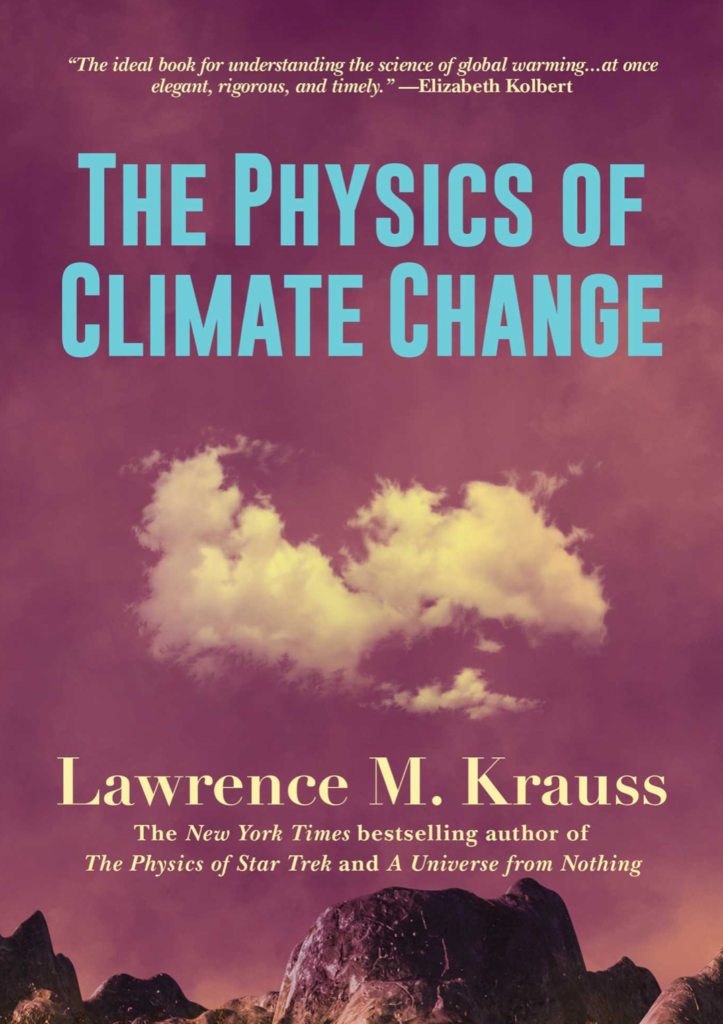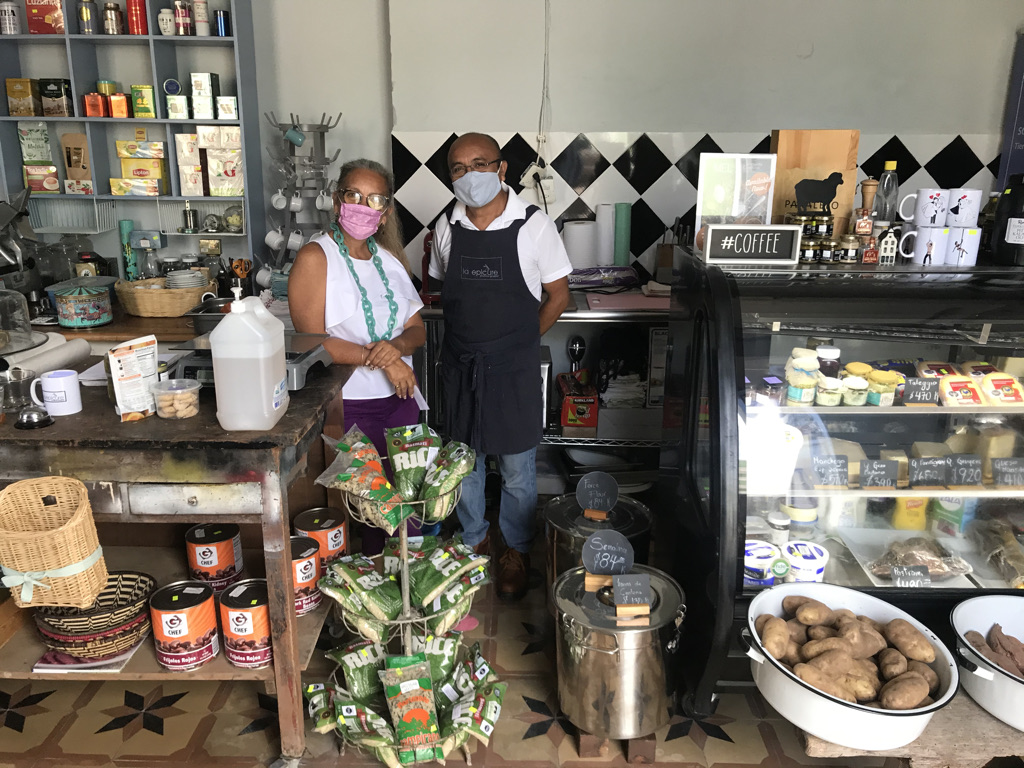We left Merida Sunday morning at 8am, figuring commercial traffic might be light. Apparently not so — but who could know what it would have been like on Monday? There was plenty of truck traffic. Even a wreck. ¿Did a tire blow? (The road was rough.) ¿Did somebody fall asleep? We saw tandem rigs (doble remolques) hauling rails and concrete ties for Tren Maya, along with all sorts of other big rigs.

Road wrecks, big rig in a ditch.
This adventure hinges on road signs. Our plumber, Rolando, likes to make fun of those people from Campeche who try to visit Merida but get lost and end up back where they started. Well, maybe the road signs of Yucatán confuse them, along with confusing many expats trying to leave Merida. I’ve been driving here for a decade, and yet I was flummoxed, wanting to bypass the many topes (speed bumps) in Umán by taking Rt. 180. But it was hard, even after having consulted google maps regarding the correct exit from the periferico (ring road). Yes, surprisingly tricky when actually driving on the highway, attempting to comprehend the road signs while having an overview of what was sought!
But that was mild compared to our experience in Campeche state. After nearing Campeche city we pulled into a rest stop at a La Gas on that city’s periferico so we could fill the tank and drain bladders, about 10:30, at about 160 km from Merida. A few short miles after getting back on, I saw a sign flit past saying CHAMPOTÓN CUOTA (a cuota is a modern toll road), but that brief look allowed no time to change lanes to take the turn for the easier route. I even knew I was looking for that road, but thought it would be labeled 180-D, or Autopista. (You’d figure after spending all that money to streamline the highway, the traffic engineers would have done a better job of marking, inviting people to pay to use their pricey handiwork — but no, the sign allowed no time to decide, as it was virtually at the ramp.) The price is 80 pesos, which we learned on the return trip where the signage was much better. That’s about $4.oo usd, for a short but efficient ride — well worth it in reduced driving stress.
So, after missing the easy way, we took the Libre, which is very hilly-curvy-narrow-scary-blind, for about a half hour. And then we saw another invitation to connect with the cuota. But wait! There was an unstaffed tollbooth (caseta, o kiosko). It had barriers blocking access, including a barrel, a lift arm, and a short metal guardrail placed to block access. The remote entrance ramp looked unused, “abandoned”, closed. ¿Had they not finished building this stretch of highway yet? So we got back on the Libre for some miles until we came to an unmarked fork in the road — and, as Yogi Berra advised, “when you come to a fork in the road, take it”. Fortunately there were a few people cutting firewood nearby at road’s edge who told us to turn around and go back — but to where? Well, sure enough, we turned around and eventually saw a sign for cuota and arrived at the same empty tollbooth. I got out of the car and was about to take a photo of this conundrum when a young woman sprinted across the road. So I asked her how to get on the cuota. She stepped into the booth and said “pay me 43 pesos.” She gave us a digital receipt, removed the barrel, raised the bar, and we were on our way. (Apparently she lived nearby, and had gone home to pee or snack or watch a telenovela.) Onward!

Champtón, a fishing village in Campeche state, on the Gulf, and on perhaps what is the only river of the peninsula.
We got to Champotón about noon and had a tasty fish plate at a rustic market facing the Gulf, on the west end of town, just before the squarish lighthouse. The place was bustling, even on a Sunday. And then we headed for Escarcega and beyond, on a long, straight highway which was very rough, due to multiple patchings.
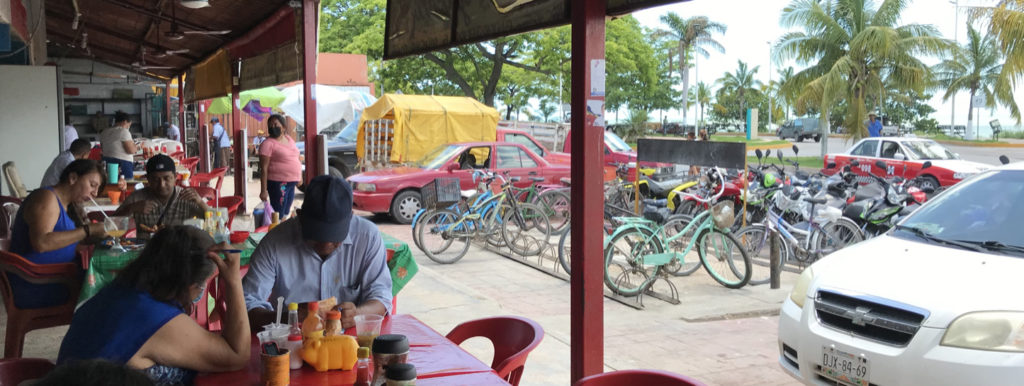
Things got smoother once we passed into the lush cattle country of Tabasco state.
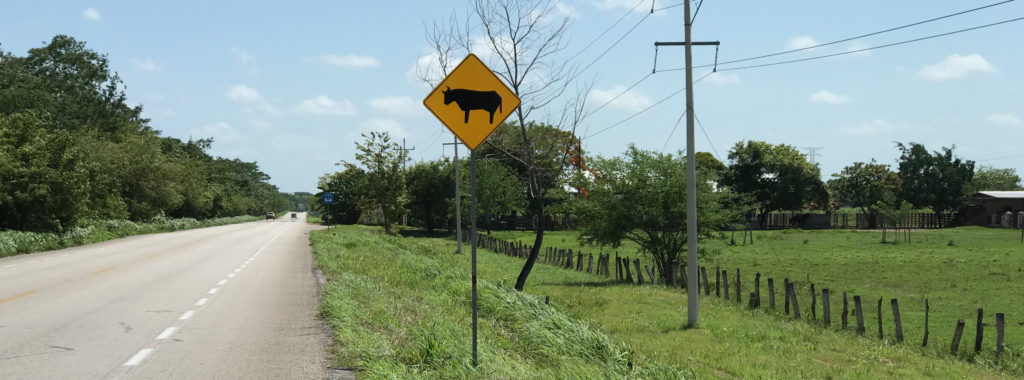
Cattle country, bull
Arrival in Palenque was a bit fraught, at least according to my wife. I had studied the city on google street-view, and thought I knew where our hotel was situated. So I was open to wandering around a bit, as it was only 4 pm — meaning the transit time from Merida, including lunch and that strange detour near Campeche city was 8 hours. So, why not explore?
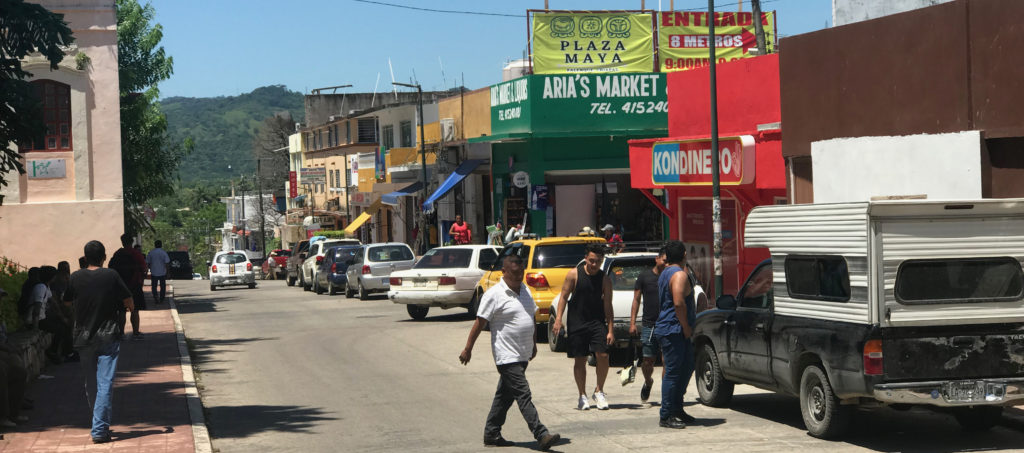
Palenque is very hilly.
Well, we got a bit lost and found ourselves on a very rough, steep, unpaved street, which was badly eroded. It was not passable without 4-wheel drive. (Believe me, I tried, much to her distress.) So we backed out, and wandered some more, finally asking a local how to find barrio La Cañada, the lovely hotel district : watch for a sky blue hotel of three stories, on the main highway thru town. Turn there, perhaps after looping around a glorieta, (there’s a median) onto cobbled streets. This will get you away from traffic noise, to reveal several blocks of cozy hotels and eateries. This enclave is shaded by tall trees. They’ve wisely retained the trees, covered with vines and populated by birds. It’s a taste of tropical jungle — a welcome spot to rest and explore.
We had visited the famous ruins of Palenque two years ago on a wonderful tour with our good friend, Marina, on her “signature tour” of Chiapas, staying briefly at the Mission Hotel in Palenque, near the edge of the hotel district, which was comfortable. This time we opted for the Tulipanes, which was also comfortable:
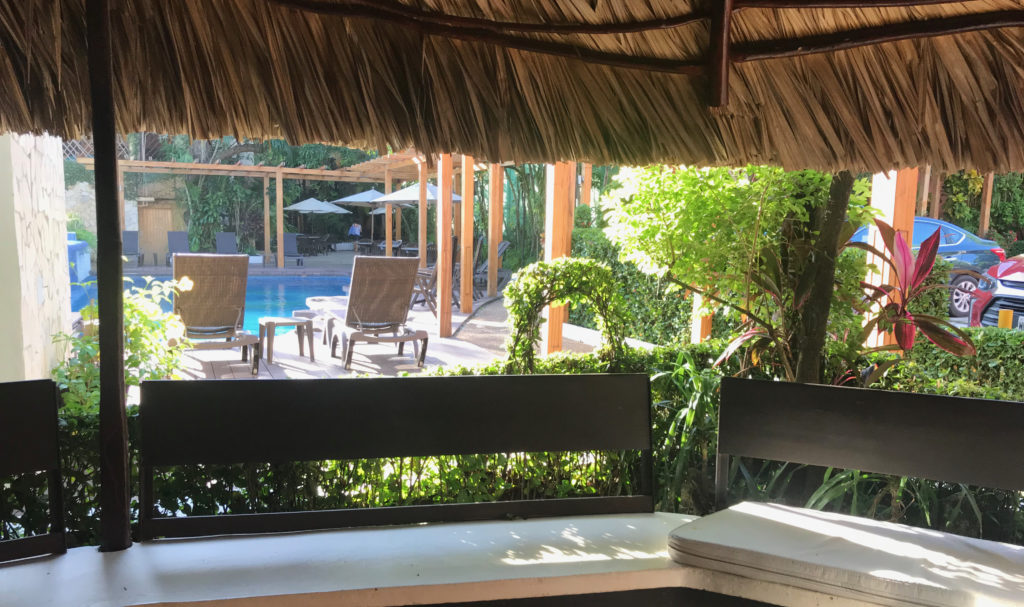
It’s hard to book hotels online, as middlemen have muscled into the process, which I detest. (I won’t use them, as I had to fight hard for a cancelation/refund a few years ago.) As a retired small-business person, I prefer to go directly to a site to consider my choices, but this is no longer easy. One Palenque hotel, the Chablis, online seemed to be closed, as their site, their phone number, and their email address on the internet and on facebook, no longer worked; but they were clearly open, just down the street from where we stayed. (So I told an employee standing out front that their marketing was presently blind, explaining my experience.) Even Hotel Tulipanes did not confirm my reservation by email, which they had agreed to do — not even after several email queries from me. (I did not give them a credit card number.) But my reservation was on file when we arrived. The world gets stranger by the day.
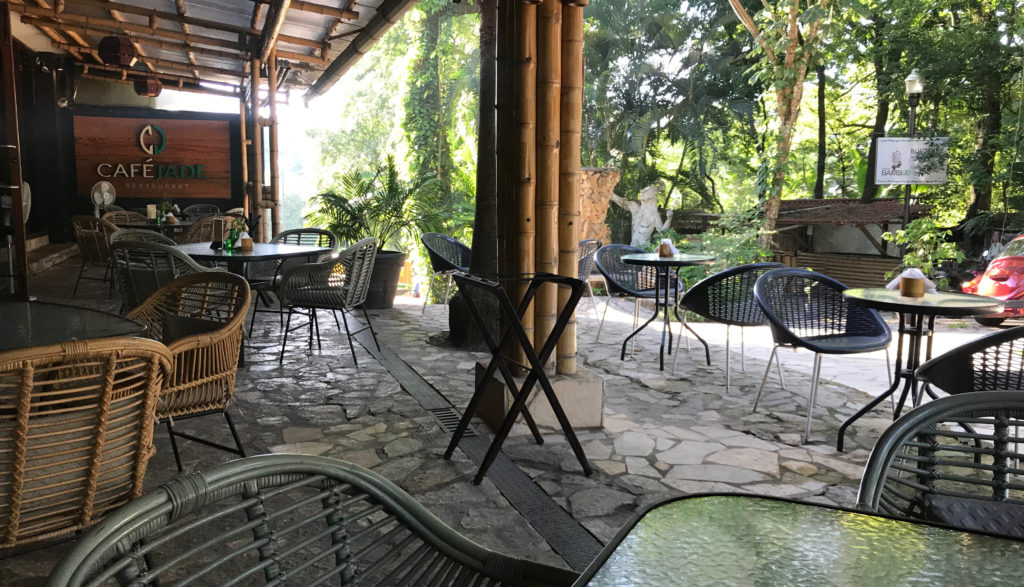
Cafe Jade, in barrio La Cañada, Palenque. Good food, good lattes here.
The purpose of our visit was to know the city better, as it will become one terminus of Tren Maya, the other being Cancún. We appreciate train travel, and thought it would be worth visiting this destination to understand the city better before the train arrives. Well, the city seemed chaotic, and already overgrown.
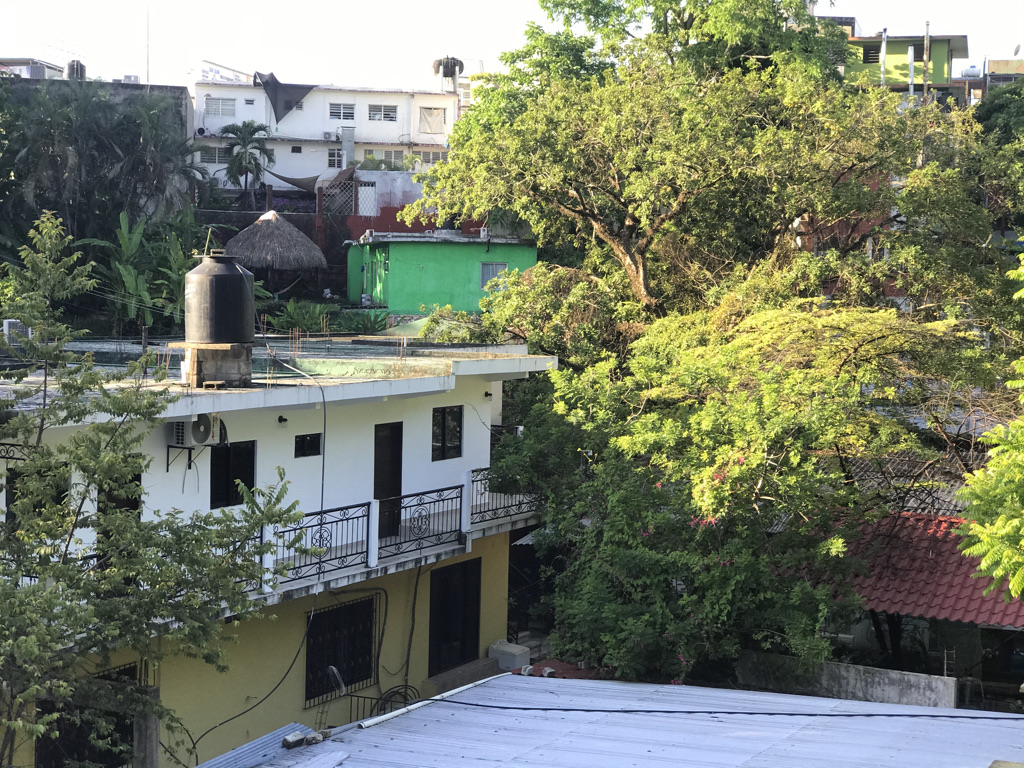
Maybe humans are feeling a bit stressed living atop each other, considering the population density, and the housing crush evident in this city. (I didn’t see a single for-sale sign.) Palenque has some big-box stores (Chedraui, Boxito, Coppel) and plenty of little tiendas, all planted atop hillocks (think Bullet, an old film from San Francisco, California). And plenty of traffic gridlock.
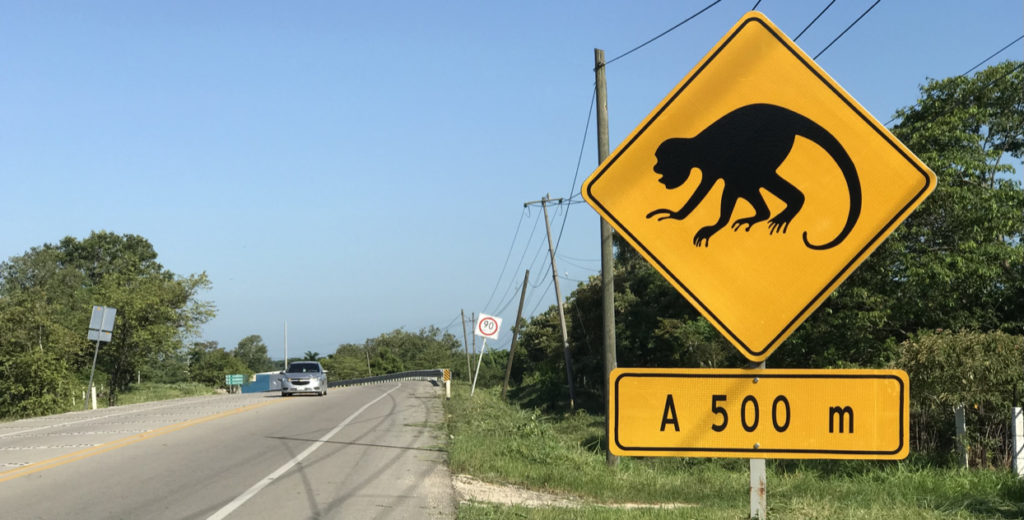
The monkeys, too, are experiencing stress in their lifestyle. But apparently some sympathetic relatives have taken pity, and built them safer highway crossings, just outside of town, “monkey bridges” to keep our furry friends safer (after clear-cutting their jungles nearby, replacing the trees with palm-oil plantations).

Tedious driving aside, this trip was a fun outing after being mostly housebound for more than a year due to pandemic! We would rather have ridden the train, but we just got impatient.
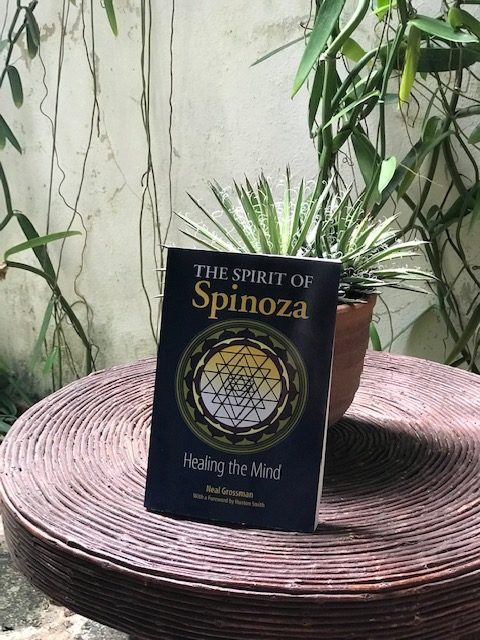
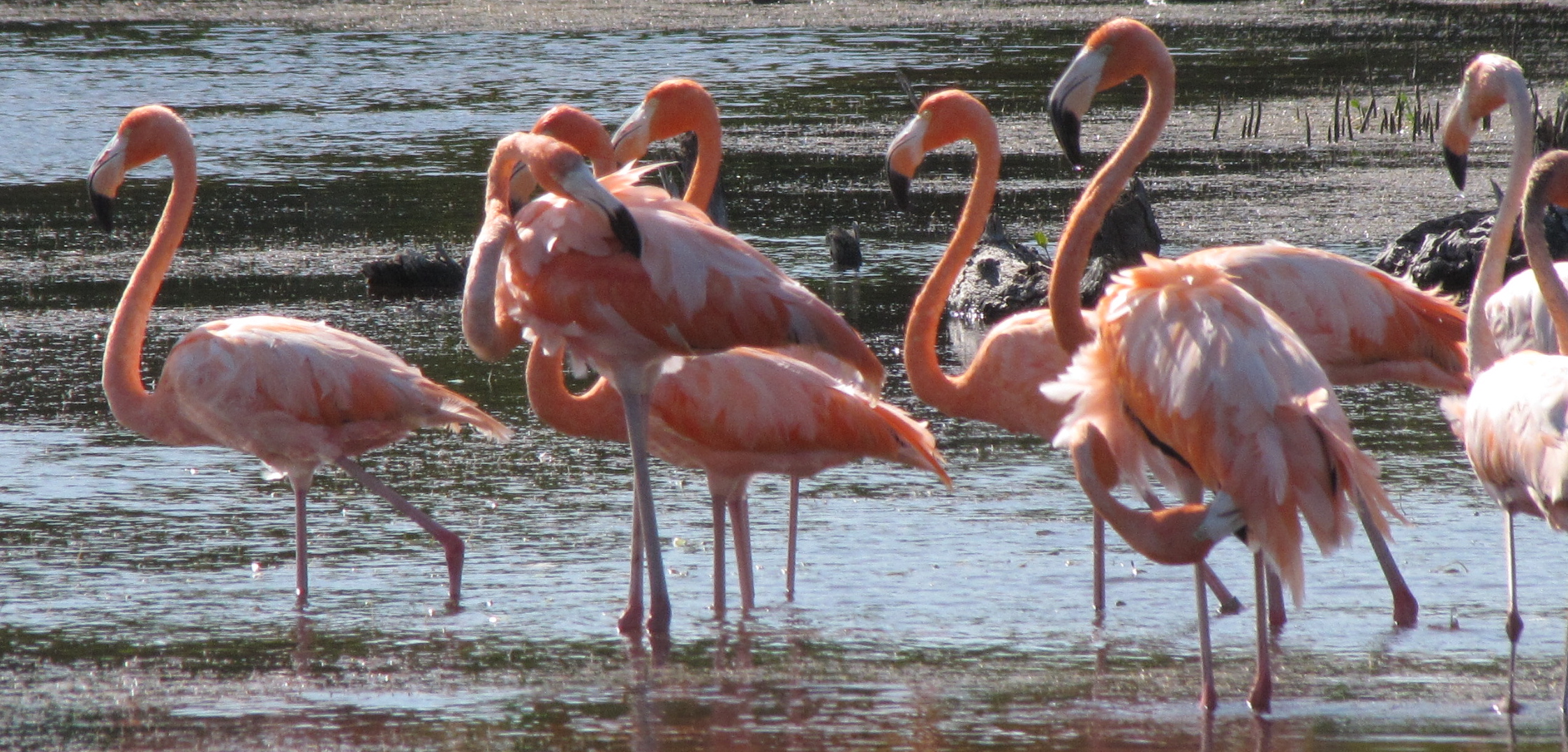





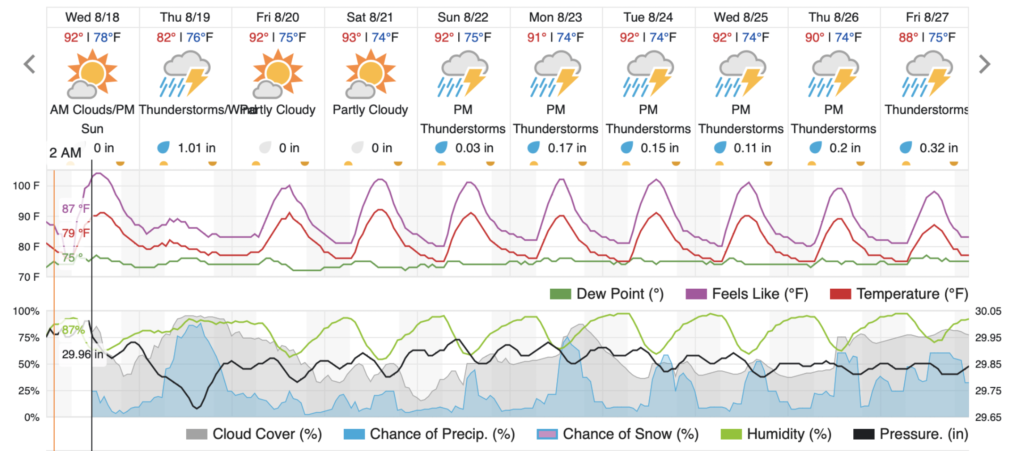





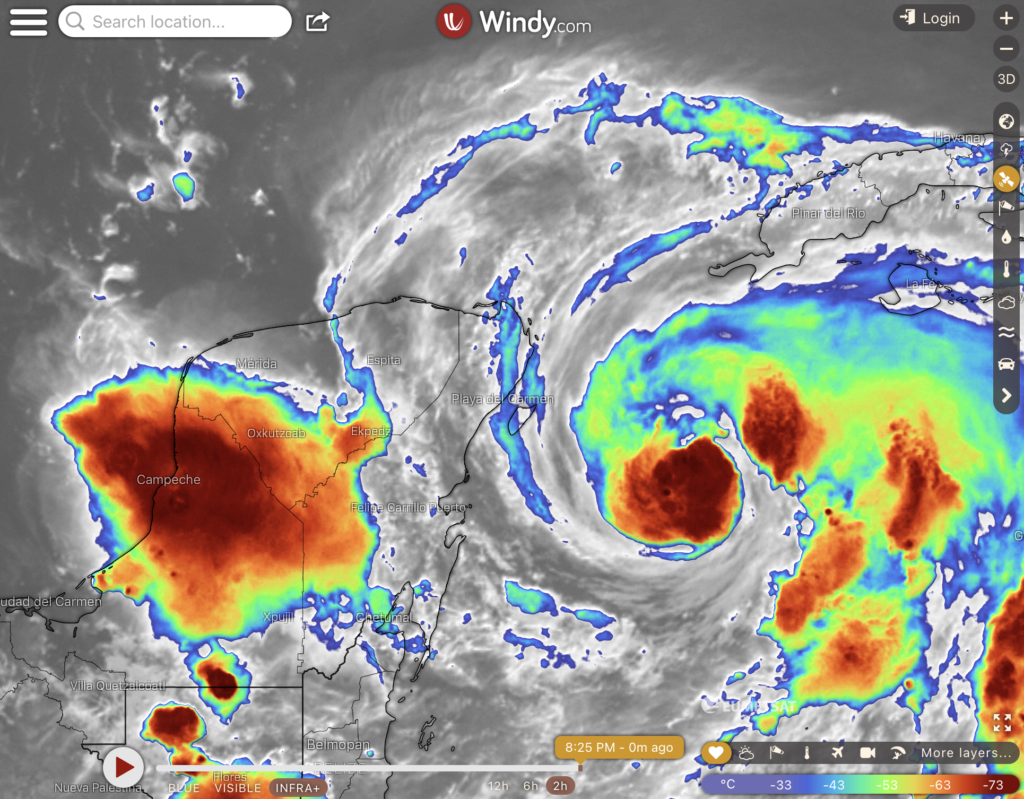



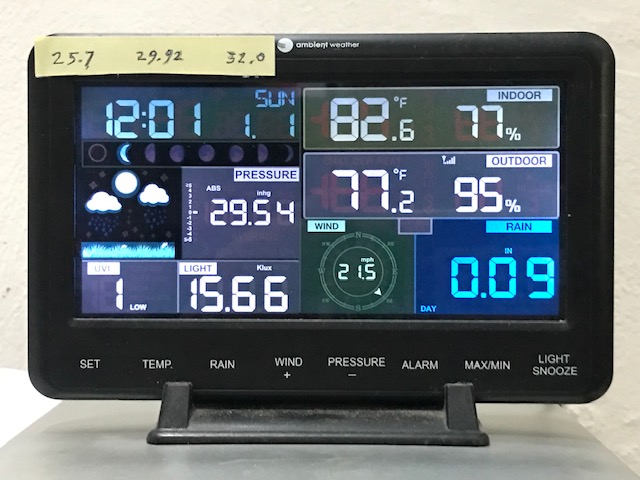
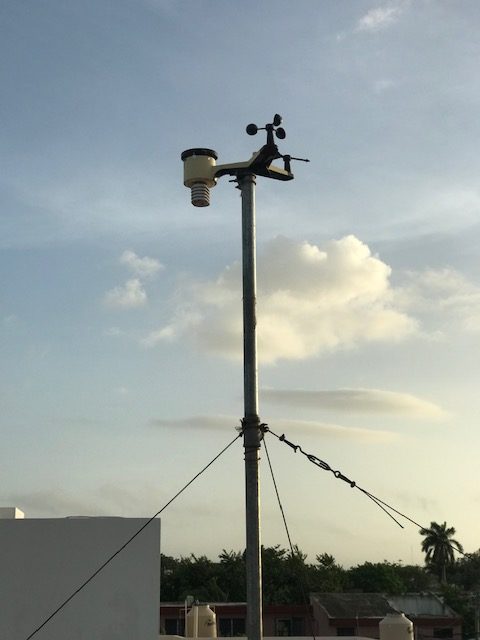
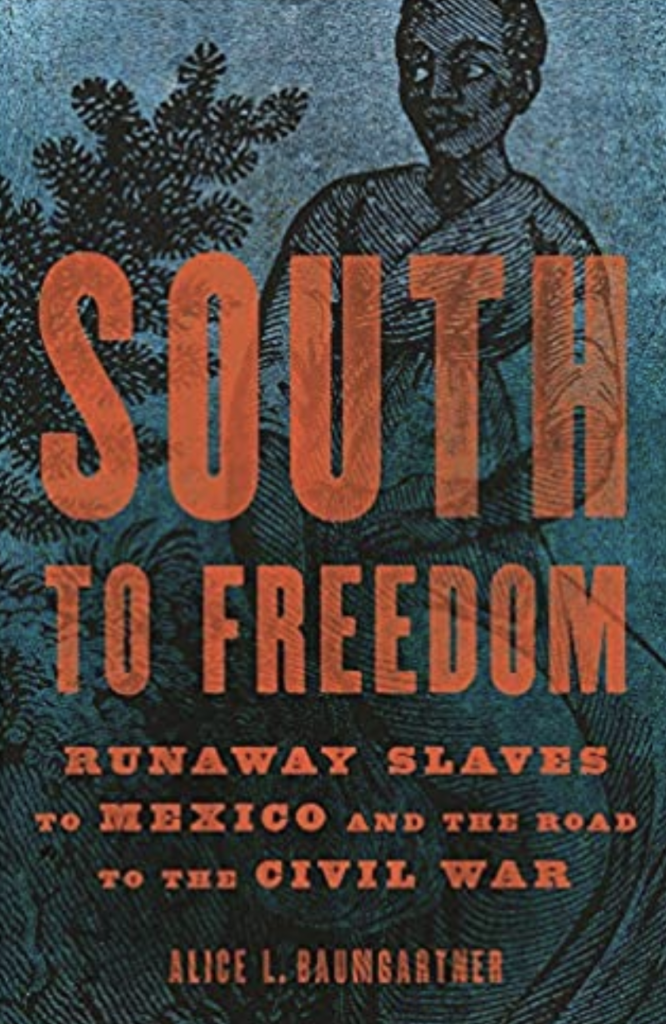

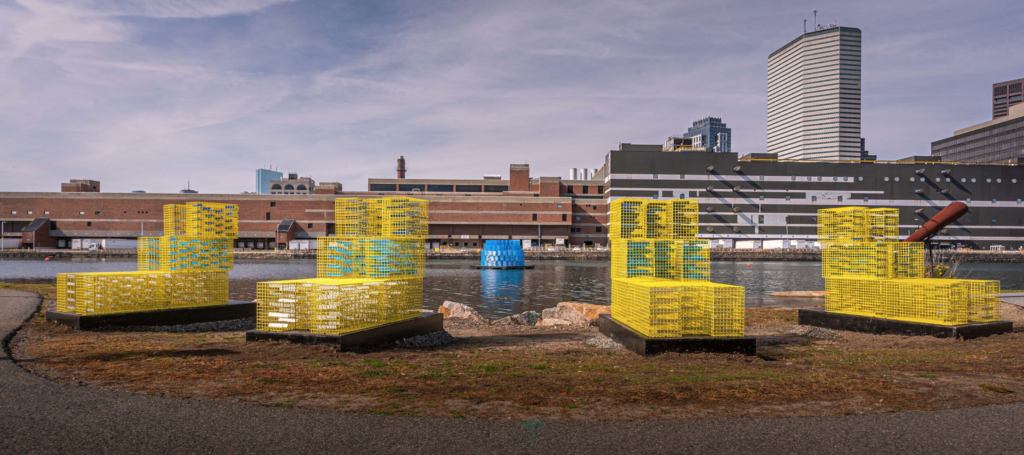 fair use
fair use











